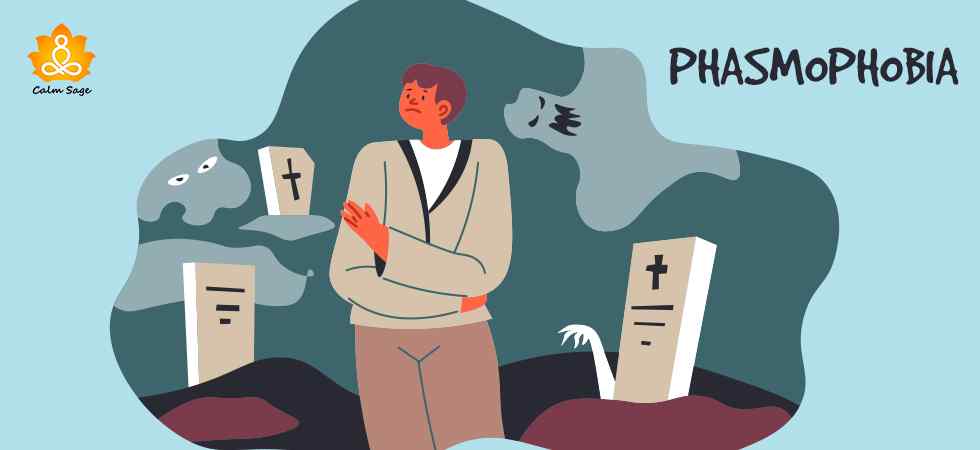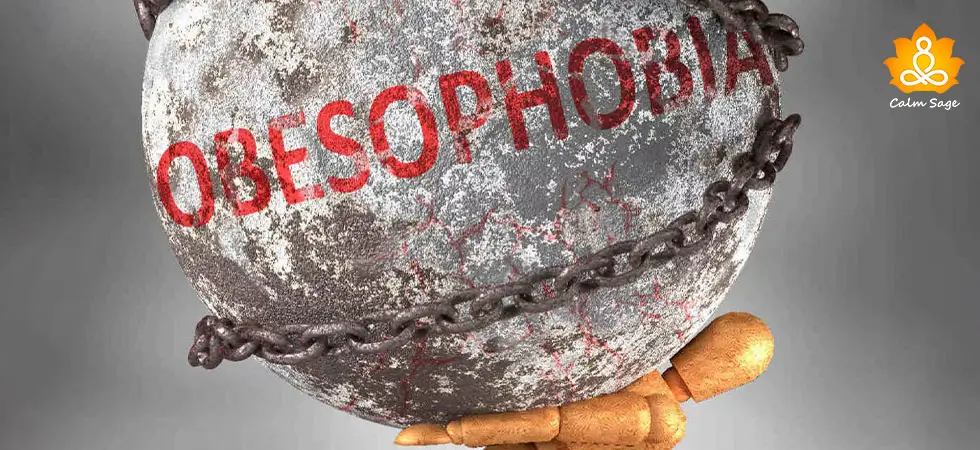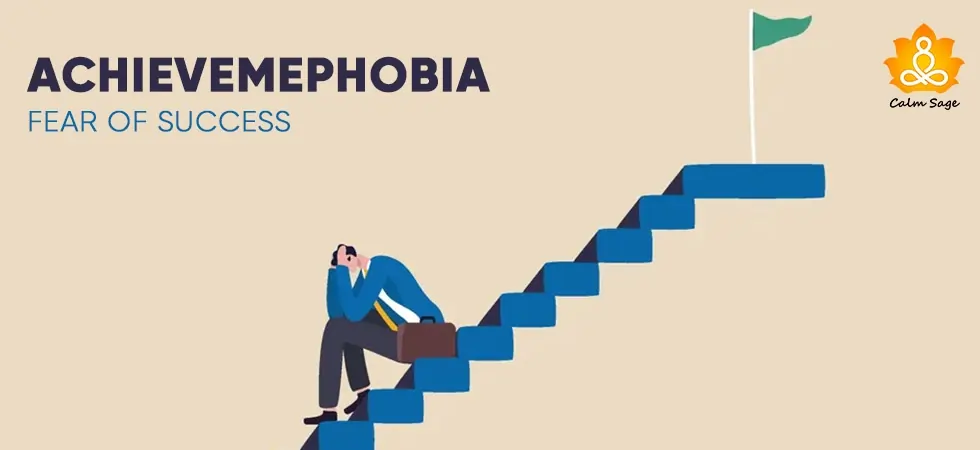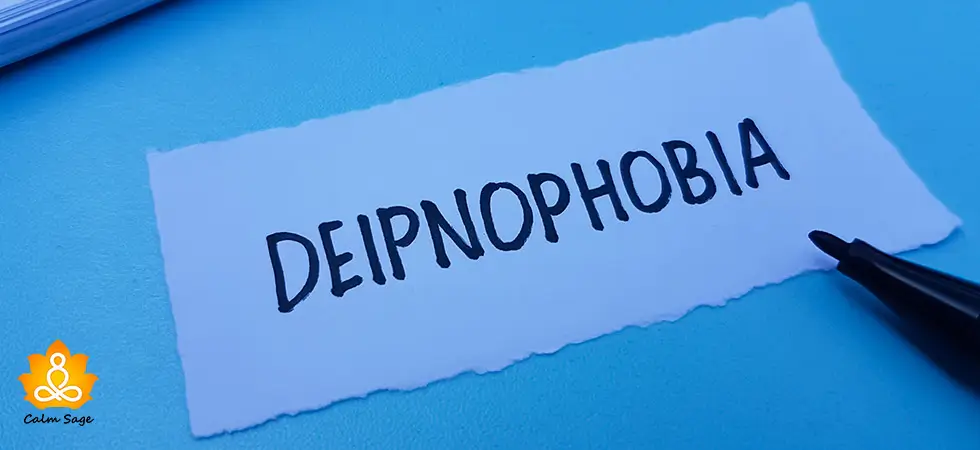Understanding Phasmophobia (Fear of Ghosts): Let’s Face Your Fear Together!

Phasmophobia is the fear of ghosts or phobia of the supernatural which merely includes supernatural things like vampires, witches, ghosts, and more. I am not going to directly mention the names of supernatural things because it might evoke irrational fear while reading this blog. Phasmophobia can be highly triggered by watching a movie, documentary, or show that includes the presence of ghosts.
Sometimes, imagining the whole scenario or recollecting memories related to them can also trigger severe anxiety which can impact daily functioning. Moreover, it can also be triggered by listening to or telling stories related to the entities.
Some people enjoy the feeling of horror but for some people, it’s not a moment of joy because it can trigger severe anxiety. In this blog, I have covered all you need to know about Phasmophobia which is the fear of ghosts.
What is Phasmophobia?
Phasmophobia is a fear of ghosts that is developed from a young age. In some cases, the anxiety and fear disappear after moving into adolescence. In some cases, the fear and anxiety remain and it can also worsen into a more debilitating phobia.
Symptoms of Phasmophobia
Below are some of the common signs and symptoms of Phasmophobia:
- Fear of being alone
- Anxiety
- Difficulty sleeping
- Panic attacks
- Intense fear of supernatural things
Some of the common physical symptoms of Phasmophobia are:
- Chills
- Nausea
- Sweating
- Trembling
- Rapid heartbeat and breathing
How Phasmophobia Affects The Quality of Life?
Fear of ghosts (Phasmophobia) is not only specific to Halloween but it can also impact the daily functioning of a person. Phasmophobia affects the quality of life like:
- People with this phobia can’t be left alone.
- People with this phobia avoid visiting dark places at
- People with this phobia keep on recalling fearful images.
- People with this phobia are not able to sleep and eat properly.
Understanding Phasmophobia from the Vision of Psychology
Phasmophobia is not considered a specific mental health condition in the Diagnostic and Statistical Manual of Mental Disorders (DSM-5). Instead, this phobia is considered and diagnosed under the section of specific phobia.
If you or your loved one is experiencing Phasmophobia and if it has started impacting your quality of life, you can cross-check with the below-mentioned factors to be diagnosed with a specific phobia:
- The phobia/fear should be excessive and persistent.
- The phobia/fear must be affecting a person’s ability to daily functioning.
- Symptoms should be present for more than 6 months.
In order to be diagnosed with phasmophobia, you must connect with a certified mental health professional. Sometimes, people misrelate this phobia with other phobias like thanatophobia (fear of death).
Therefore, it is always recommended to connect with a mental health professional for seeking the right approach.
Causes of Phasmophobia
Studies suggest that environmental and genetic factors can result in the development of Phasmophobia. Research also suggests that people who have other types of anxiety disorders are also at risk of developing phobias. Most of the cases are due to genetic influence.
Moreover, stressful experiences or other influences can also play a major part. below are some of the common causes of Phasmophobia:
- Magical Thinking: Magical thinking revolves around the thoughts that a person’s wishes, ideas, or philosophies can influence the physical world.
- Supernatural Beliefs: Supernatural belief is contrary to magical thinking and it’s about religious beliefs.
- Parapsychology: Parapsychology is a branch of psychology that attempts to record or document the incidences of paranormal activities.
Treatment of Phasmophobia
Since no one is able to prove the existence of ghosts as of now, Phasmophobia is a bit challenging to treat. But, with the help of the right approach and conventional methods, it can be treated. Below are some of the common treatment methods used for treating Phasmophobia:
1. Psychotherapy
Psychotherapy is the most effective method to treat Phasmophobia. Some of the different techniques used to treat Phasmophobia are:
Cognitive Behavioral Therapy (CBT): CBT is helpful and effective as it helps in changing the negative thinking or beliefs related to the roots of fear. It also helps in learning positive thoughts and beliefs.
Exposure Therapy: Exposure Therapy is considered to be the right treatment approach for treating specific phobias. In this therapy, people are exposed to the source of fear while practicing relaxation techniques.
2. Medication
Medications are provided in some cases along with therapy to help people cope in a better way. Medications are provided to treat symptoms like depression and anxiety. Antidepressants or anti-anxiety medication are generally provided to make the treatment more effective.
Self-Help Tips for Managing Phasmophobia
Try the below self-help coping tips along with therapy to manage Phasmophobia in a more effective way:
- Get plenty of sleep
- Eat a healthy diet
- Stay active and keep yourself engaged in regular exercises, meditation, or yoga
- Try mindfulness-based exercises
- Try deep breathing or progressive muscle relaxation
- Seek social support to cope with a stressful situation
I hope this blog helps you understand all you need to know about Phasmophobia. For more such content, connect
Thanks for reading!




















